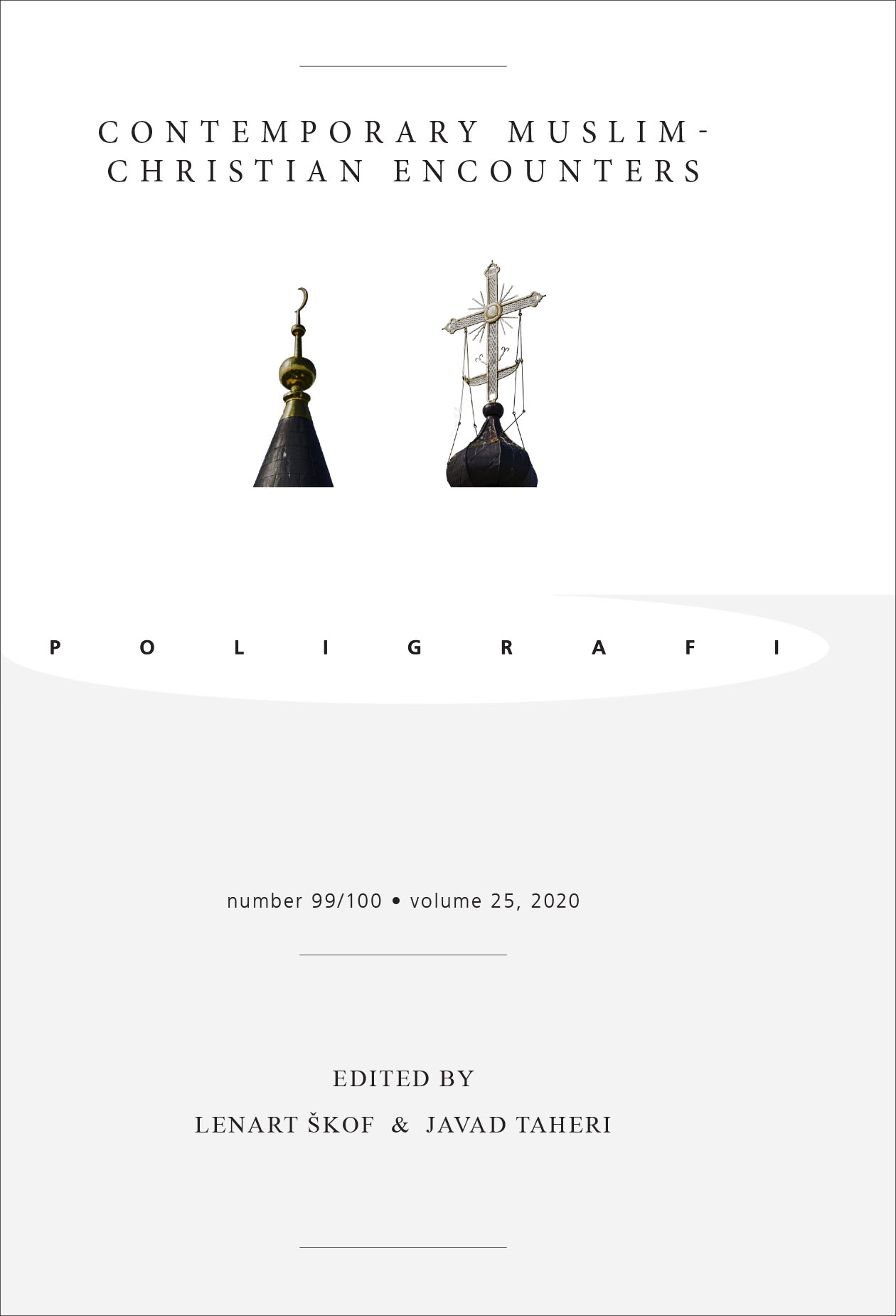Moj bližnji kot meni enak
DOI:
https://doi.org/10.35469/poligrafi.2020.234Ključne besede:
drugi, enakost, človeško dostojanstvo, odtujitev, tujecPovzetek
Izjemna človeška sposobnost »ljubiti« drug drugega je po mojem mnenju najmočnejši dokaz tako za obstoj Boga kot za odnos, za kakršnega je Bog želel, da bi ga človek imel do Njega in do svojega bližnjega. Obenem je človeška zmožnost za zavist, sovraštvo, nasilje in teptanje dostojanstva »drugih« ljudi podobno močan dokaz, da je nekaj hudo narobe – ljudje ne zmorejo vzdrževati želenega odnosa z Bogom ali z drugim. Božji namen se ne spreminja, samo raztresena človeška bitja včasih pozabimo nanj. Težava tiči v jedru človekove odtujitve od Boga in drug od drugega, zaradi nje smo osamljeni, pozabljivi, sumničavi in preplašeni.
V prispevku želim ponuditi okvir, ki nam bo pomagal uzreti vir težave, raziskati nekaj razlogov za človekovo odtujenost od bližnjega in od stvarstva ter poiskati načine za premostitev vrzeli med nami in ostalim božjim stvarstvom. Verjamem, da vsi spopadi, vse zatiranje in trpljenje izvirajo iz te odtujitve in da je bistveno poslanstvo vseh religij, ali vsaj abrahamskih religij, premostiti ta prepad tako, da drugega obravnavajo kot enakovrednega.
Prenosi
Literatura
The Holy Quran, A new translation. Translated by Abdel Haleem M.A.S. New York: Oxford World’s Classics, 2004.
Akpinar, Snjezana, “Two Responses to ‘Interreligious Dialogue and Spiritual Hospitality’: Hospitality in Islam.” Religion East & West 7 (2007): 23–27. https://issuu.com/drbu/docs/issue7_art2.
Anidjar, Gil, ed. Jacques Derrida: Acts of Religion. New York and London: Routledge, 2002.
Armstrong, Karen. “The Charter for Compassion.” Filmed February 2008. TED video, 21:15. http://www.ted.com/talks/karen_armstrong_makes_her_ted_prize_wish_the_charter_for_compassion.html.
Buber, Martin. I and Thou. Translated by Walter Kaufman. New York: Charles Scribner’s Sons, 1970.
Caputo, John D., ed. Deconstruction in a Nutshell: A Conversation with Jacques Derrida. New York: Fordham University Press, 1997.
Cohen, Richard A., ed. Face to Face with Levinas. SUNY Series in Philosophy. Albany, NY: State University of New York Press, 1986.
Freeman, Curtis W. “Alterity and its Cure.” Cross Currents 59, no. 4 (2009): 404–441. https://www.jstor.org/stable/24461588.
Hewitt, Marsha A. “Alterity and Ethics.” Religion 27, no. 2 (1997): 101–105. https://doi.org/10.1006/reli.1997.0068.
Janzen, J. Gerald. Abraham and All the Families of the Earth: A Commentary on the Book of Genesis 12-50. Grand Rapids: WM. B. Eerdmans Publishing Company, 1993.
Josephides, Lisette. “Cosmopolitanism as the existential condition of humanity.” Social Anthropology 18, no. 4 (2010): 389–395. https://doi.org/10.1111/j.1469-8676.2010.00121.x.
Levinas, Emmanuel. Ethics and Infinity. Pittsburgh, PA: Duquesne University Press, 1985.
Levinas, Emmanuel. Totality and Infinity. An Essay on Exteriority. Translated by Alphonso Lingis. The Hague, Boston and London: Martinus Nijhoff Publishers & Duquesne University Press, 1979.
Otto, Rudolf. The Idea of the Holy. London: Oxford University Press, 1936.
Smith, Jonathan Z. “What a Difference a Difference Makes.” In To See Ourselves as Others See Us: Christians, Jews and “Others” in Late Antiquity, edited by Jacob Neusner and Ernest S. Frerichs, 3–48. Chico, CA: Scholars Press, 1985.
Stamm, Julian L. “Camus’ Stranger: His Act of Violence.” American Imago 26, no. 3 (1969): 281–290. https://www.jstor.org/stable/26302600.
Wyschogrod, Edith. Saints and Postmodernism: Revisioning Moral Philosophy. Chicago: University of Chicago Press, 1990.
Yandel, Keith. Philosophy of Religion. London and New York: Routledge, 1999.
Prenosi
Objavljeno
Kako citirati
Številka
Rubrike
Licenca
Open Access Policy and Copyright
This journal provides immediate open access to its content on the principle that making research freely available to the public supports a greater global exchange of knowledge. Users are allowed to read, download, copy, distribute, print, search, or link to the full texts of the articles, or use them for any other lawful purpose, without asking prior permission from the publisher or the author.
Authors who publish with this journal agree to the following terms:
- Authors retain copyright and grant the journal right of first publication with the work simultaneously licensed under the terms of the Creative Commons Attribution license (CC BY) that allows others to share the work with an acknowledgement of the work’s authorship and initial publication in this journal.
- Authors grant the publisher commercial rights to produce hardcopy volumes of the journal for sale to libraries and individuals.
- Authors are able to enter into separate, additional contractual arrangements for the non-exclusive distribution of the journal’s published version of the work (e.g., post it to an institutional repository or publish it in a book), with an acknowledgement of its initial publication in this journal.




